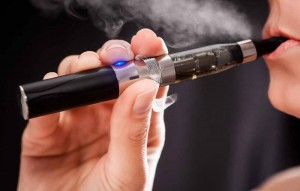-
Mayo Clinic Experts: What Should You Know About E-Cigarettes?
Electronic cigarettes, or e-cigarettes, have ignited a smoke-free firestorm of controversy. Last month the Centers for Disease Control and Prevention (CDC) reported that their use by children doubled from 2011 to 2012.
In spite of one study that concluded e-cigarettes may help smokers break free from their nicotine addiction, other experts have voiced concerns they may actually lead new smokers to take up the habit. The battery-powered devices work by vaporizing a small amount of liquid, which generally contains nicotine and a variety of flavors.
What is known about electronic cigarettes?
- Manufacturers claim that electronic cigarettes are a safe alternative to conventional cigarettes.
- The Food and Drug Administration (FDA) has questioned the safety of these products.
- FDA analysis of two popular brands found variable amounts of nicotine and traces of toxic chemicals, including known cancer-causing substances (carcinogens).
- The FDA has issued a warning about potential health risks associated with electronic cigarettes, but is not yet regulating their use or standards of manufacture.
The founder and director of Mayo Clinic’s Nicotine Dependence Center (NDC), Richard Hurt, M.D., says not enough is known about the potential hazards of e-cigarettes at this time. For that reason Dr. Hurt says they are not being used at the NDC, a facility with 25 years of proven education and training programs, as well as research aimed at nicotine dependence treatment approaches.
Listen to Dr. Hurt's comments on e-cigarettes in the video below. A transcript of his comments can be read here.
Journalists: To arrange interviews with Mayo experts and to read the full news release click here. Dr. Hurt's sound bites can be edited from the video and audio files available in the downloads.
http://www.youtube.com/watch?v=yjoykFPBxbA








